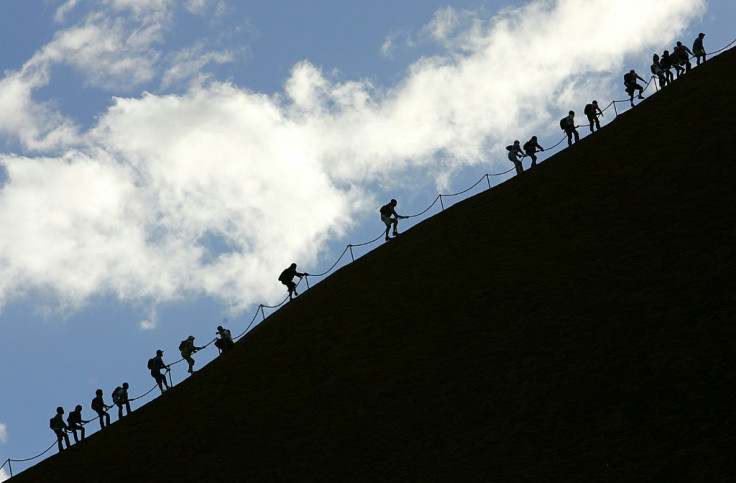Bulldozed sacred Aboriginal tree sparks public outcry in Australia
A mining company responsible for the destruction of ancient Aboriginal caves in Western Australia also prompted massive criticism
A sacred Aboriginal tree that was cut down on Monday to clear land for a highway has sparked much anger in Australia. Protesters have camped out at the site in Victoria to defend the trees that play a significant cultural part in the lives of the Djab Wurrung people.
Despite the protests, officials have defended the felling of the tree, saying that the tree was not included in its protection list. The Djab Wurrung "directions tree" is just one of many significant trees of Australia's Aboriginal people. Some trees are centuries old "birthing trees" of the local Djab Wurrung women where they traditionally go to give birth and bury their placentas as part of their tradition.
In a deal with the Aboriginal land owners, the Victorian government signed negotiations to save about a dozen of the 250 "culturally significant" trees from being destroyed. However, activists that are independent of the Aboriginal land owners group have remained at the site to protect more of the sacred trees.
Authorities said the tree that was removed was thought to be 100 years old but protesters argue the tree was a yellow box species that was estimated to be 350 years old. Authorities suggested the activists' classification of the trees differed from that of the land group's, which has led to the current stand down, the BBC reported.
Around 25 protesters were arrested by Victoria Police on Tuesday as they refused to leave the premises while land clearing was underway. Footage of the arrest shared on social media showed some protesters climbing up the trees while police officers forcibly drag their companions away.
While many have condemned the destruction of the sacred trees, the Victoria government has strongly defended the construction of the highway project. This is a 7.4 mile expansion road that spans between Melbourne and Adelaide and is deemed to reduce traffic accidents
"With more than 100 crashes on the Western Highway in recent years, including 11 deaths, we're getting on with this urgent safety upgrade that will save lives," it said in a statement.
State officials clarified that the project received approval from traditional owner groups and have also passed federal environmental as well as legal checks.
Earlier this year, a mining company responsible for the destruction of ancient Aboriginal caves in Western Australia also prompted a public outcry and massive criticism of Australia's cultural heritage laws.

© Copyright IBTimes 2024. All rights reserved.





